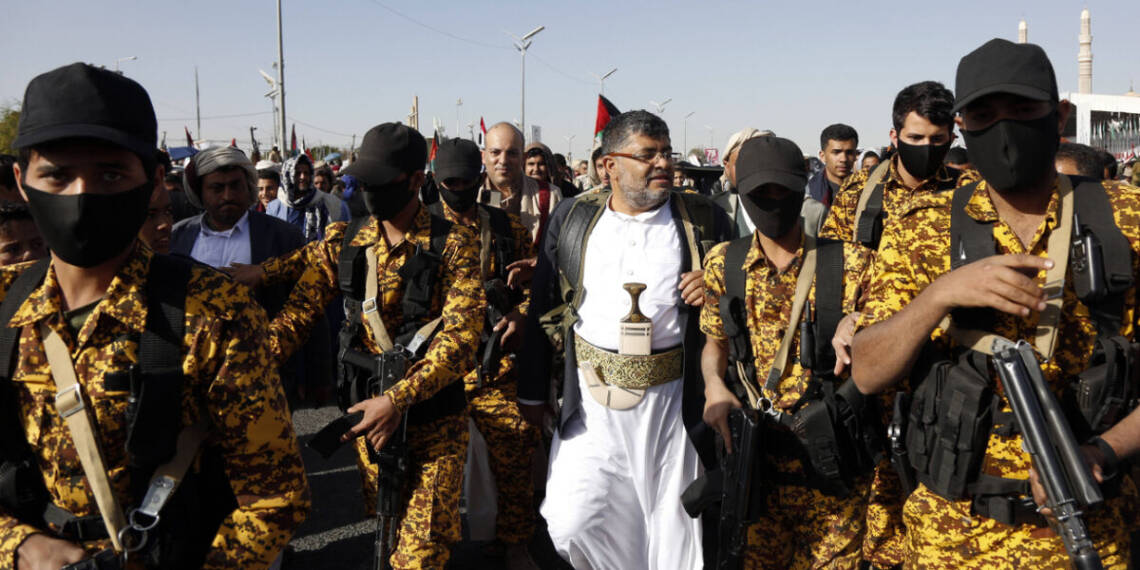In a sweeping crackdown following the death of their political leadership, Houthi forces in Yemen have raided multiple United Nations offices and detained at least 11 staff members, in what appears to be a retaliatory move after an Israeli airstrike killed the group’s Prime Minister Ahmed al‑Rahawi and several senior cabinet officials.
The coordinated raids, which took place in both the capital Sanaa and the key port city of Hodeida, targeted UN agencies including the World Food Programme (WFP), UNICEF, and the World Health Organization (WHO). Witnesses and aid workers described armed Houthi operatives storming offices, seizing computers and documents, and taking employees into custody without explanation.
The Houthis have consistently defended detaining UN personnel by accusing the United Nations of failing to adhere to its own principles and acting as a cover for espionage. Mohammed Ali al‑Houthi, a member of their Supreme Political Council, stated:
“We have no position against UN organization employees, but we condemn the US for employing its spies under the guise of humanitarian and diplomatic work.”
He offered to present evidence to “a third party that rejects the violation of countries’ sovereignty,” inviting China and Russia to bring the issue before the UN Security Council.
The group issued a series of statements warning of a strong retaliation. Major General Mohammed Nasser Al-Atifi, the Houthi defense minister, said their armed forces are fully prepared to confront Israel and claimed that “America is targeting civilians in Yemen, just as it is doing in Gaza.”
Israeli Strike Triggers Escalation
The detentions follow a high-profile Israeli strike last week that targeted a government facility in Sanaa, killing al‑Rahawi and key members of his administration. Israel has not officially confirmed the operation but has publicly vowed to intensify strikes against what it describes as “Iranian-backed threats” in the region, including the Houthis.
Houthi officials have condemned the attack and accused the UN of complicity with Western powers, despite no evidence supporting such claims. In response, the group has tightened internal security measures, launched retaliatory attacks in the Red Sea, and escalated its rhetoric against international organizations operating in Yemeni territory.
United Nations Condemns the Detentions
UN Secretary-General António Guterres issued a strong condemnation on Sunday, demanding the “immediate and unconditional release” of all detained personnel.
“The United Nations is deeply alarmed by the arbitrary detention of its staff and the blatant violation of diplomatic norms and humanitarian law,” Guterres said in a statement. “These actions endanger the lives of aid workers and jeopardize critical assistance to millions of Yemenis.”
Hans Grundberg, the UN Special Envoy to Yemen, echoed the call for de-escalation, urging the Houthis to “respect the neutrality and independence” of humanitarian actors. The UN has since limited staff movement in Houthi-controlled regions due to safety concerns.
This is not the first time the Houthi movement, which controls large swaths of northern Yemen, has detained international or humanitarian personnel. Rights groups, including Human Rights Watch and Amnesty International, have documented repeated cases of arbitrary detention, forced disappearances, and even reports of torture in custody.
In February 2025, the Houthis detained eight UN workers in a similar sweep targeting civil society and humanitarian organizations. One staffer died in custody under unclear circumstances earlier this year, drawing international outcry.
Humanitarian Crisis Worsens
“These raids are a direct attack not just on the UN, but on the people of Yemen,” said a spokesperson for the World Food Programme. “Without access and safety guarantees, we cannot continue our work.”
The United Nations is reportedly reviewing its operations in Yemen and may further reduce its presence in Houthi-controlled areas if staff safety cannot be ensured.
As tensions mount, international observers warn that Yemen could once again become a flashpoint in broader Middle East conflicts. Diplomats are urging restraint on all sides, but the detention of UN workers adds a dangerous new dimension to an already volatile situation.
For now, the fate of the detained UN employees remains unclear, with backchannel negotiations reportedly underway to secure their release.







